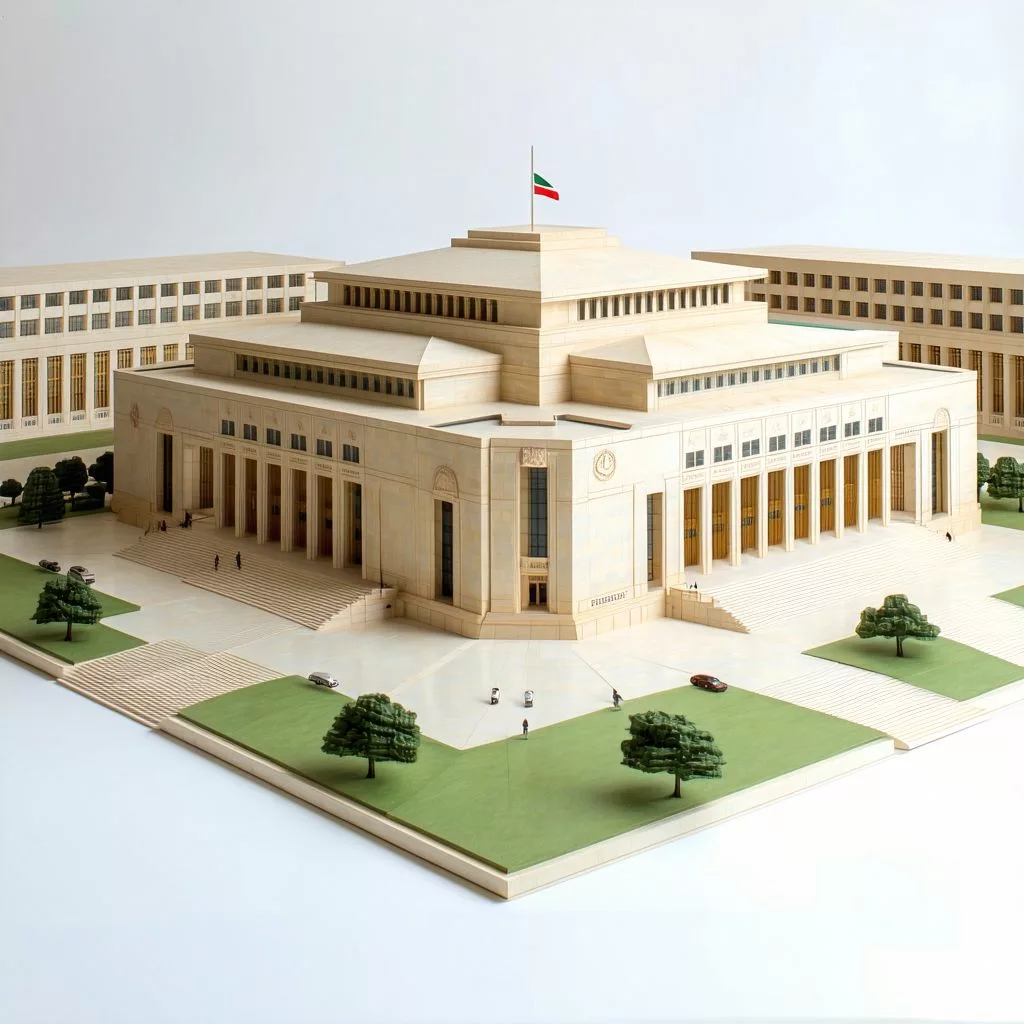Membathisi Mdladlana was a powerful leader in South Africa, known for his fight for justice and education during the country’s shift to democracy. He helped create the Bill of Rights, served as Minister of Labour, and co-founded the South African Democratic Teachers Union, focusing on workers’ rights and better schools. His work paved the way for a fairer society, showing how important education is for everyone. Even after his passing, Mdladlana’s legacy inspires people to keep working towards equality and opportunity for all South Africans.
What was Membathisi Mdladlana’s contribution to South Africa?
Membathisi Mdladlana was a pivotal leader in South Africa’s transition to democracy, advocating for justice and education. He shaped the Bill of Rights, served as Minister of Labour, and co-founded the South African Democratic Teachers Union, promoting labor rights and educational reforms that empower future generations.
A Visionary Leader in South Africa’s Democratic Transition
Membathisi Mdladlana stands out as a pivotal figure in South Africa’s rich tapestry of history due to his unwavering dedication to justice and equality. His journey through life left an indelible mark on the nation’s political and educational landscape, reflecting a profound commitment to democratic ideals. As South Africa remembers this luminary, it is essential to delve into the life of a man who dedicated himself to the principles of democracy and education, reshaping the nation’s path towards a more equitable society.
Born during a period of significant societal upheaval, Mdladlana emerged as a crucial force in South Africa’s transition from apartheid to democracy. He played an influential role in the first post-apartheid Parliament, at a time when the nation faced the daunting task of unifying under the principles of equality and justice. His efforts in shaping the Bill of Rights stand as a testament to his dedication to safeguarding the fundamental freedoms of all South Africans, ensuring that the rights of every citizen were enshrined in the new democratic framework.
As a leader, Mdladlana wore many hats, each role highlighting his commitment to transformative change. He was not only a key participant in the Constitutional Assembly Committee but also served on various parliamentary committees, contributing to critical discussions that shaped the country’s future. As Minister of Labour from 1998 to 2009, he championed labor rights, introducing policies aimed at reducing inequality and improving conditions for workers across the nation. His influence reached beyond South Africa’s borders, with diplomatic roles as Ambassador to Burundi and High Commissioner to Canada, where he continued to foster international understanding and cooperation.
A Pillar of Education and Empowerment
Mdladlana’s contributions to education were equally impactful, reflecting his belief in education as a cornerstone of a just society. As a co-founder of the South African Democratic Teachers Union (SADTU) and its first President, he played a pivotal role in advocating for educators’ rights and professionalizing the teaching profession. His efforts laid the foundation for reforms that continue to influence South Africa’s educational policies today, emphasizing the importance of nurturing future generations through quality education.
His deep commitment to education extended beyond policy advocacy. Mdladlana’s vision for an empowered society was deeply rooted in the belief that education could uplift communities and drive social change. He worked tirelessly to ensure that the education system became a pillar of democracy, providing opportunities for all citizens, regardless of their background. This dedication to education as a tool for empowerment remains a guiding principle in the ongoing efforts to build a more equitable society in South Africa.
The recognition of Mdladlana’s contributions by the Presiding Officers of Parliament is not just a ceremonial acknowledgment; it is a heartfelt tribute to a man whose life’s work profoundly shaped both the political and educational frameworks of the country. His relentless pursuit of equality and justice continues to inspire those committed to building a South Africa grounded in dignity and opportunity for all. This acknowledgment serves as a reminder of the enduring relevance of his ideals in modern society.
A Legacy of Diplomatic Contributions and Social Transformation
Mdladlana’s career was not confined to domestic achievements; his diplomatic assignments provided a global dimension to his legacy. As Ambassador to Burundi and High Commissioner to Canada, he represented South Africa with integrity and vision, engaging with global issues and fostering international relations. These roles enriched his perspective and reinforced his belief in the interconnectedness of the world, contributing to a broader ambition of social transformation beyond legislative achievements.
Beyond the accolades and positions, Mdladlana’s life was a relentless quest for justice. He navigated the complexities of post-apartheid South Africa with a vision that extended far beyond policy changes to a comprehensive approach to social transformation. His life’s work mirrored the evolution of South Africa itself, transitioning from a nation marked by division and disparity to one striving for unity and equal opportunity, encapsulating the spirit of resilience and progress that defines the country’s ongoing narrative.
As South Africa mourns the loss of such a transformative figure, there is a collective commitment to uphold Mdladlana’s legacy. His life’s work remains a beacon for those who continue the struggle for a society where every individual has the opportunity to thrive. The tribute from Parliament encapsulates this impact, reminding us of the values he championed—equality, justice, and education—and their enduring importance in today’s South Africa.
Inspiring Future Generations
Mdladlana’s contributions are woven into the broader context of South African history, intersecting with key moments in the nation’s journey toward democracy. His steadfast leadership and vision during times of transition highlight the importance of individual dedication in effecting meaningful change. His legacy is not confined to the past; it continues to inspire current and future generations to strive for a society marked by compassion, fairness, and opportunity.
Reflecting on the life and contributions of Mr. Membathisi Mdladlana, we are reminded of the transformative power of individual dedication to justice and education. His life’s work serves as a testament to his enduring influence on South Africa’s democratic evolution. The tributes paid to him are not merely acknowledgments of his achievements but a call to action to build on the foundation he helped to establish.
In honoring Mdladlana’s legacy, South Africa reaffirms its commitment to the ideals he championed. His story is a powerful reminder of the impact that one dedicated individual can have on a nation’s journey toward a more just and equitable future. As we continue to build on his legacy, let us be inspired by his vision and unwavering dedication to justice, equality, and education for all.
“`markdown
FAQ: Celebrating the Legacy of Membathisi Mdladlana
What contributions did Membathisi Mdladlana make to South Africa’s transition to democracy?
Membathisi Mdladlana was a key leader in South Africa’s shift to democracy, advocating for justice and education. He played a significant role in shaping the Bill of Rights, served as Minister of Labour, and co-founded the South African Democratic Teachers Union, promoting labor rights and educational reforms.
How did Mdladlana influence the education system in South Africa?
Mdladlana co-founded the South African Democratic Teachers Union (SADTU) and served as its first President, focusing on educators’ rights and professionalizing the teaching profession. His efforts laid the groundwork for ongoing educational reforms, emphasizing the importance of quality education as a means to empower future generations.
What roles did Mdladlana serve in government, and how did they impact workers’ rights?
As Minister of Labour from 1998 to 2009, Mdladlana introduced policies aimed at improving working conditions and reducing inequality among workers. His advocacy for labor rights significantly contributed to building a more equitable workforce in post-apartheid South Africa.
In what ways did Mdladlana contribute to international relations?
Mdladlana served as Ambassador to Burundi and High Commissioner to Canada, where he represented South Africa and engaged in global issues. His diplomatic roles enriched his perspective and reinforced his belief in the interconnectedness of nations, contributing to social transformation beyond legislative achievements.
What is the significance of Mdladlana’s legacy for future generations?
Mdladlana’s commitment to justice and education inspires current and future generations to strive for a society characterized by compassion, fairness, and opportunity. His life’s work serves as a reminder of the transformative power of individual dedication in effecting meaningful change.
How does South Africa honor Mdladlana’s contributions after his passing?
South Africa acknowledges Mdladlana’s contributions through tributes from the Presiding Officers of Parliament, which highlight his enduring influence on the country’s political and educational frameworks. These recognitions serve not just as ceremonial acknowledgments but as a call to action to uphold the ideals of equality, justice, and education that he championed.
“`












